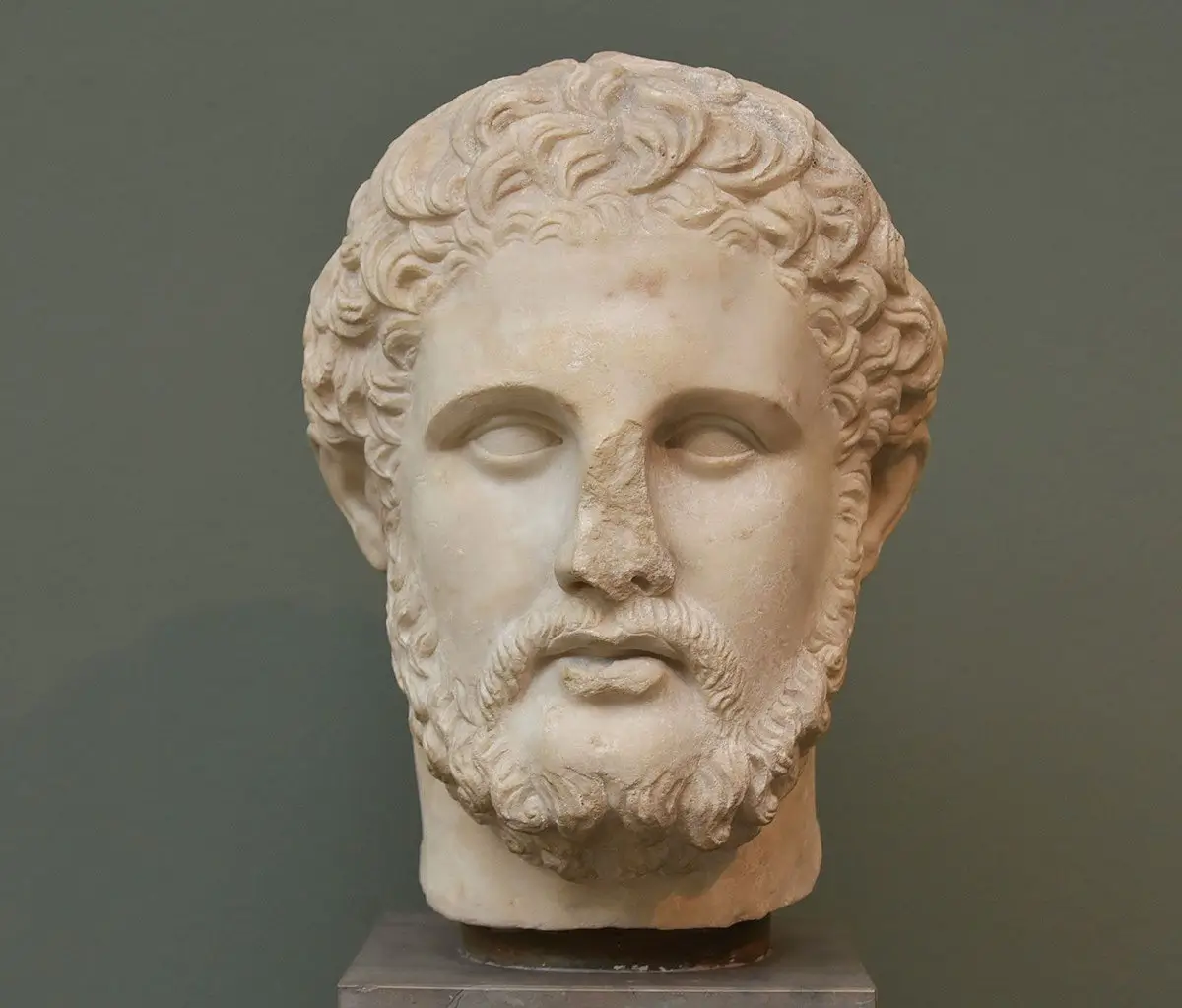Throughout history, some of the most defining moments are not shaped by great battles or conquests but by words—sharp and unyielding, like swords that leave an everlasting mark.
Philip II of Macedon
One such moment unfolded in Ancient Greece, when the disciplined and fiercely independent city-state of Sparta responded with a single, defiant word to a threat from King Philip II of Macedon. This brief yet powerful reply would not only echo through history but also profoundly shape its course.
A Threat from a King
Alexander the Great
It was around 346 BCE, and Philip II—father of Alexander the Great—was swiftly expanding his Macedonian empire across Greece. One city after another fell under his dominion, and his ambitions soon turned to Sparta, the proud and unyielding warrior-state of the Greek world.
Philip, confident in his growing power, sent the Spartans a message:
"If I invade Laconia, I will drive you out."
The Spartans, known for their laconic wit and indomitable spirit, replied with just one word:
"If."
The Power of One Word
Behind this single syllable lay centuries of Spartan pride, discipline, and unwavering defiance. It was not just a response—it was a declaration. Sparta would not submit, no matter how powerful the threat.
Philip, impressed (or perhaps deterred) by their boldness, chose not to invade. While most of Greece fell under Macedonian rule, Sparta remained independent, standing firm against the tide of conquest.
The Price of Isolation
Yet history is full of ironies. Decades later, when the Persian threat re-emerged and Alexander the Great launched his legendary campaign, Sparta refused to join the pan-Hellenic alliance. Once again, it chose isolation over unity.
This decision, however, had lasting consequences. Sparta became politically isolated, marking the beginning of its decline. The same fierce independence that once made it legendary would ultimately lead to its marginalization in the rapidly changing Greek world.
To emphasize this divide, after Alexander’s victory at the Battle of Granicus in 334 BCE, he sent 300 Persian shields to Athens, inscribed with a pointed message:
"Alexander, son of Philip, and the Greeks—except the Lacedaemonians."
With this, Alexander immortalized Sparta’s absence from one of the most glorious military campaigns in history.
A Legacy in Words
Reflecting on Sparta’s unyielding yet tragic defiance, the Greek poet Constantine Cavafy captured its fate in his poem "In 200 B.C.":
"Alexander, son of Philip, and the Greeks—except the Lacedaemonians."
"One imagines the Spartans were entirely indifferent to this inscription. ‘Except the Lacedaemonians’—but of course. Spartans were not meant to be led or commanded like mere servants. Besides, a grand pan-Hellenic campaign without a Spartan king at its head would not have seemed particularly glorious to them. Oh, certainly—‘except the Lacedaemonians.’"
This Spartan response—just one word—taught the world a timeless lesson: history is not only shaped by armies and conquests, but by the courage embedded in a single, unwavering stand.
It also highlighted two conflicting worldviews:
Alexander’s world—expansion, conquest, and the unification of cultures under a shared Greek identity.
Sparta’s world—isolation, the preservation of traditional independence, and resistance to external influence at all costs.
Both left their mark on history. But in the end, it was Alexander’s vision that prevailed, shaping a new and lasting Greek world—one that stretched from Egypt to India.
As for the Spartans? Their legacy endures in a single, immortal word:
"If."












